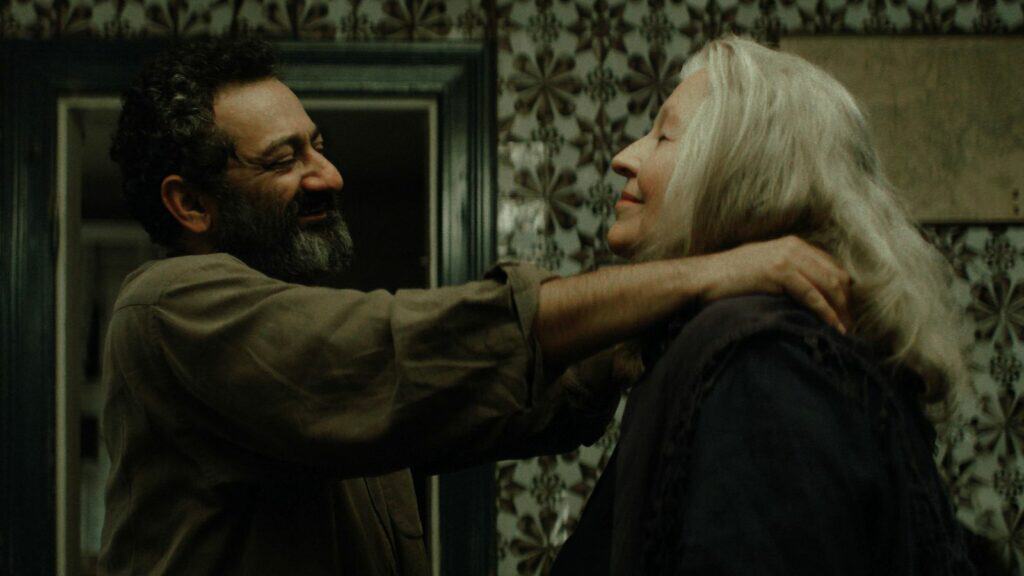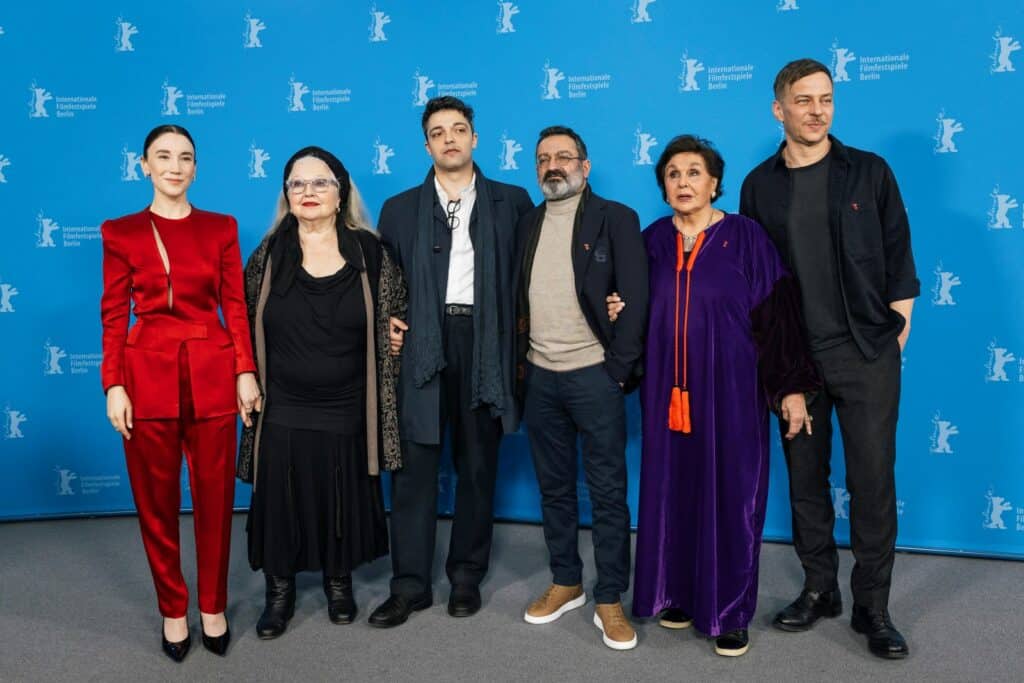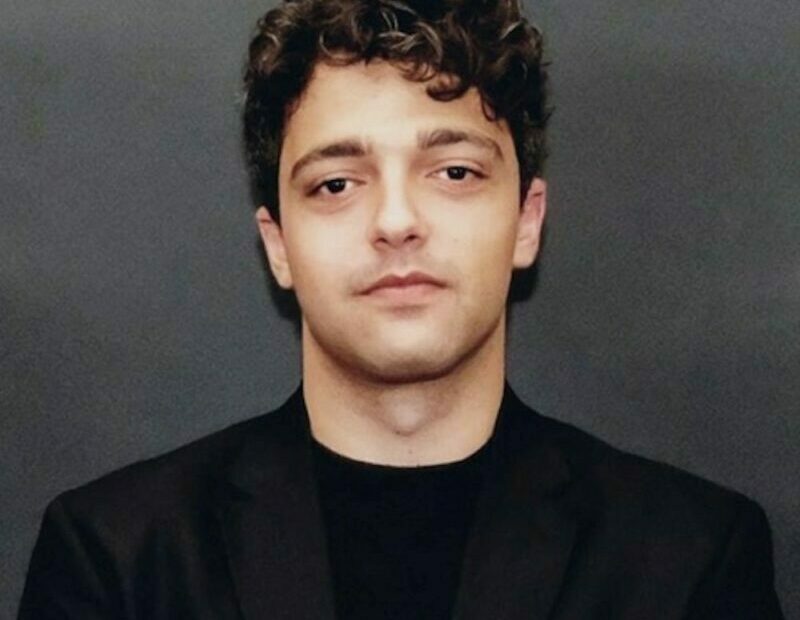The German presence in the 2025 Berlinale competition was surprisingly scarce, with merely two sophomore features representing the country. What Marielle Knows (Was Marielle weiss) by Frédéric Hambalek, and Yunan by Ameer Fakher Eldin. The latter is set on an island off the German coast where writer Munir (Georges Khabbaz) arrives, supposedly to end his life. Once there, he meets the owner of the sole hotel. Valeska (Hannah Schygulla). She initially rejects him for not having a reservation but decides to let him sleep in an old, unused guest home not too far from the hotel building. Munir has left his dementia-stricken mother behind after asking her to repeat a story about a shepherd, which she seems unable to finish.
Valeska has a son, Karl, who seems less than happy about Munir’s presence. Meanwhile, the island is threatened by a violent storm, which has caused many people to evacuate the premises. The weather will take metaphorical proportions verging on the biblical. The aforementioned story about the shepherd (Ali Suliman) and his wife (Sibel Kekill) is gradually played out for the spectators and seems to have parallels to Munir’s fate. After the initial meeting, Munir and Valeska warm to each other and, not unexpectedly, the former puts his plans on hold. Several aspects of Yunan‘s narrative are not unexpected, but that is not the film’s focus.

The purpose of Yunan
The lack of stress on the narrative is inherently not a problem. Other building blocks of this 124-minute work might be, not least, the feeling that we’ve seen many of the themes before. The young director treats highly recognisable ideas and symbolism, and some of the (splendidly shot) imagery looks familiar, too. It is not far-fetched for the viewer to let the mind wander to films by Béla Tarr and even Nuri Bilge Ceylan. The name Valeska doesn’t merely bring the director Valeska Griesbach to mind but also Valuska, the main character in Tarr’s Werckmeister Harmonies (2000), played by German actor Lars Rudolph. Schygulla had a part in that film as well.
Apropos Werckmeister, I felt inclined to give up on the film when a huge creature was seen on the beach. However, that would mean abandoning one of the best-shot films in the competition. Ronald Plante’s images are compelling even when they are sometimes a tad too akin to other films that the director might admire. A Silver Bear for Outstanding Artistic Contribution for the cinematography would have made more sense than the actual recipient of that award. More often than not, the imagery is congenial with the themes, and the shifts in the lensing are congruent with the shift in the human connections.

The film’s main strength is still the gradual relationship between Munir and Valeska, which doesn’t play out in a cliché-ridden way but is grounded in subtle moments that gradually bring two humans closer to each other to the benefit of both. Ameer Fakher Eldin’s second film is clearly an arthouse film without the added sm, and it is all the better for it. Yunan demands patience from the viewer but boasts plenty of rewards behind the customary metaphors. It turned out to be more worthwhile than most of the competition films that won awards. It remains to be seen what the third part of the trilogy will bring.
Yunan by Ameer Fakher Eldin - The Disapproving Swede dreamy

Director: Ameer Fakher Eldin
Date Created: 2025-04-12 23:20
3.5
Pros
- Cinematography
- Acting
Cons
- Some arthouse clichés
